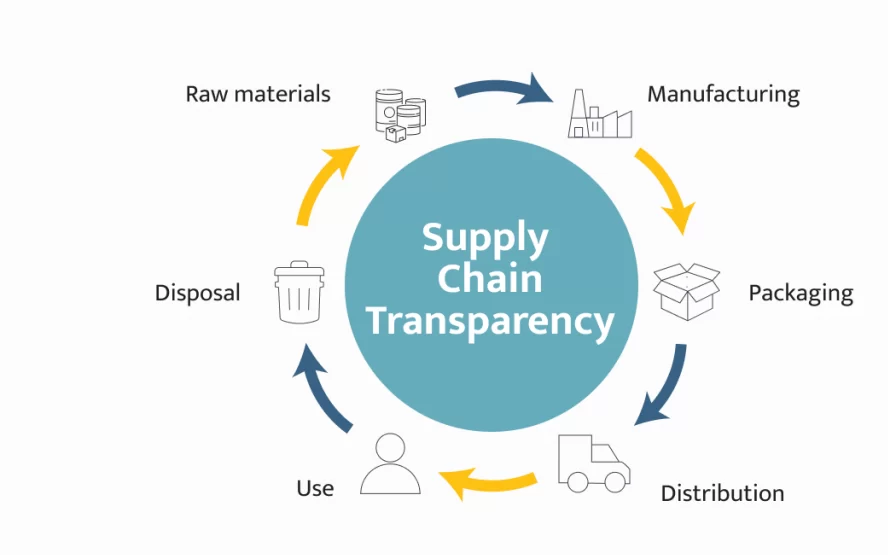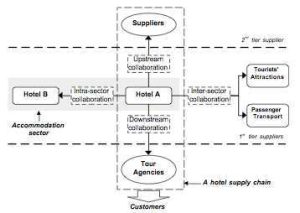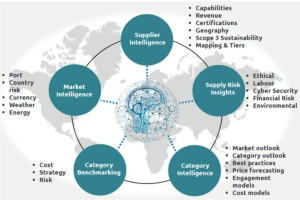Transparency and traceability have emerged as crucial principles in the hospitality industry, enabling businesses to build trust with guests, suppliers, and other stakeholders. As consumers become increasingly conscious of the environmental and ethical impact of their choices, they demand greater visibility into the sourcing and production processes of the products and services they consume. This article explores the significance of transparency and traceability in the hospitality sector, their impact on guest satisfaction and brand reputation, and the initiatives undertaken by establishments to embrace openness and accountability.
- Defining Transparency and Traceability in Hospitality
Transparency refers to the practice of openly sharing information with stakeholders, providing them with a clear view of the processes, practices, and values of a hospitality business. Traceability, on the other hand, is the ability to trace the journey of products from their origin to the end-user, ensuring accountability and ethical sourcing.
- The Importance of Transparency in Hospitality
In an era marked by information accessibility, consumers expect businesses to be transparent about their operations and the impact of their actions on society and the environment. Transparency fosters trust, loyalty, and a sense of authenticity among guests.
- Building Guest Confidence
Transparency assures guests that the products and services they are receiving meet high standards of quality and ethics. When hospitality establishments are open about their sourcing, sustainable practices, and commitment to social responsibility, guests are more likely to choose them over competitors.
- Ethical Sourcing and Responsible Practices
Transparency and traceability play a significant role in ensuring ethical sourcing and responsible practices in the hospitality industry. By being transparent about the origins of products, such as food, linens, and toiletries, businesses can demonstrate their commitment to fair trade and sustainability.
- Supply Chain Visibility
Transparency and traceability enhance supply chain visibility, allowing businesses to track the flow of goods and services from suppliers to end-users. This visibility enables swift action in case of any issues or disruptions, ensuring smooth operations.
- Engaging Consumers in Sustainable Choices
Transparency empowers consumers to make informed and sustainable choices. By providing information on the environmental and social impact of their products, hospitality establishments encourage guests to align their preferences with responsible practices.
- Trust and Brand Reputation
Transparent practices build trust, which is a valuable asset in the hospitality industry. A strong reputation for transparency enhances brand image and credibility, leading to increased guest loyalty and positive word-of-mouth.
- Initiatives for Transparency and Traceability
a. Sustainable Sourcing Policies: Hospitality businesses are implementing sustainable sourcing policies that prioritize ethical suppliers and environmentally friendly products.
b. Certifications and Labels: Green certifications, fair trade labels, and eco-friendly seals provide guests with tangible evidence of a business’s commitment to transparency and traceability.
c. Digital Platforms and Information Sharing: Hotels and restaurants are leveraging digital platforms to share information about their suppliers, sourcing practices, and sustainability efforts with guests.
d. Responsible Food Sourcing: Transparently sharing information about the sources of ingredients and the use of locally grown or organic produce showcases a commitment to responsible food sourcing.
e. Eco-Friendly Initiatives: Hospitality establishments are transparently communicating their efforts to reduce waste, recycle, and adopt eco-friendly practices in their operations.
f. Collaboration with Ethical Suppliers: Partnering with suppliers who share the same values and commitment to sustainability strengthens the transparency and traceability of the supply chain.
- Challenges and Opportunities
a. Supply Chain Complexity: The hospitality supply chain can be complex, involving numerous suppliers and partners. Ensuring transparency and traceability throughout this network requires robust data management and collaboration.
b. Data Privacy and Security: Transparency necessitates the sharing of information, raising concerns about data privacy and security. Hospitality businesses must implement secure systems and adhere to privacy regulations.
c. Consumer Education: Transparent practices are most effective when guests understand their significance. Hospitality establishments can engage in consumer education to raise awareness about sustainability and the impact of responsible choices.
Conclusion
Hospitality transparency and traceability are indispensable in fostering trust, loyalty, and responsible consumption in the industry. By openly sharing information about their sourcing, sustainable practices, and ethical commitments, hotels, restaurants, and other establishments build stronger relationships with guests and suppliers. Transparent practices not only demonstrate a commitment to social and environmental responsibility but also contribute to the long-term success and positive reputation of hospitality businesses. As the demand for sustainable and ethical choices continues to grow, transparency and traceability will remain vital in shaping the future of the hospitality industry.






